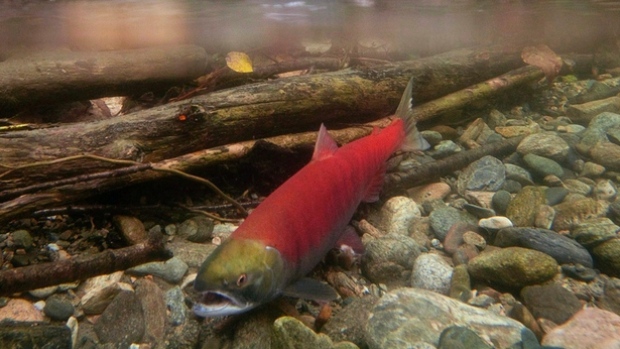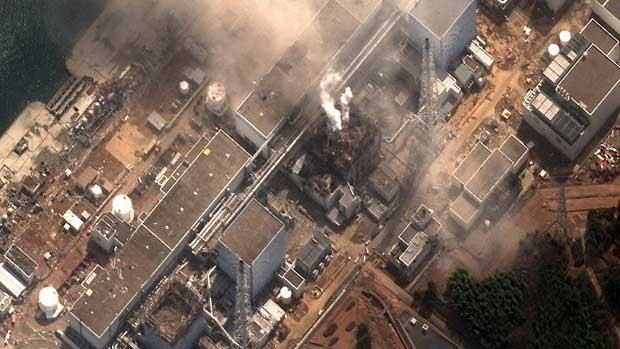For years there was concern and fear about possible, long-lingering effects on Canada’s West Coast as a result of the meltdown of Japan’s Fukushima nuclear plant in 2011.
Now, seven years after the tragedy, it appears all be certain that people in British Columbia can let out a sigh of relief.
A team of researchers at Simon Frazer University’s nuclear science lab collected soil and salmon samples from the Quesnel and Harrison rivers, using a high-resolution gamma-ray spectroscopy to search for signs of radioactive isotopes.

A new study from nuclear scientists at B.C.’s Simon Fraser University offers good news for West Coast salmon and people fearing radioactive fallout from Japan’s Fukushima disaster 11 years ago (Jonathan Hayward/Canadian Press)
The isotopes, Cesium 134 and 137, are fission fragments that do no exist in nature and, therefore, can be directed to nuclear reactions.
“The levels found in both the salmon and soil samples remained below Canada’s safety guidelines, posing minimal risk to B.C.’s salmon and human and human populations,” lead chemist Krzysztof Starosta said in a news release.
The study published in the Canadian Journal of Chemistry, found “very low” levels of lingering isotopes in both soil and salmon but said they likely date back the testing of nuclear weapons in the 1960s and the 1986 Chernobyl explosion.
More than 18,000 people died and 70,000 others were displaced from their homes in the tsunami that struck the Fukushima plant causing partial meltdowns in three reactions.
Japan marked the anniversary of the tragedy on Sunday in Tokyo.
With files from Canada Press, CBC







For reasons beyond our control, and for an undetermined period of time, our comment section is now closed. However, our social networks remain open to your contributions.